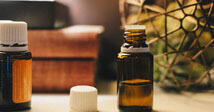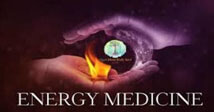

Integrative nursing is a way of being-knowing-doing that advances the health and well-being of persons, families, and communities through caring/healing relationships. Integrative nurses use evidence to inform traditional and emerging interventions that support whole person/whole systems healing.
Historically, nursing is deeply rooted in a tradition of caring and healing. While contemporary healthcare has created obstacles that often make it hard to provide holistic care, patients and their families are yearning for it. Millions of nurses around the globe are drawn to practicing person-centered, relationship-based care that incorporates the use of integrative or complementary therapies with conventional care and is focused on advancing the health and well-being of people, communities, and organizations.
Integrative nursing is a whole person/whole system approach to care that honors a legacy that began with Florence Nightingale, who wrote that the role of the nurse was to put the patient in the best possible condition so that nature could act and healing occur. Integrative nursing can be practiced with all patient populations and in all clinical settings. It has the potential to strengthen and invigorate the profession.

With the growing popularity of integrative medicine, essential oils have found their way back into health care. Essential oils provide a simple way to alleviate certain physical symptoms, promote emotional well-being, and provide comfort. We will discuss the administration and common uses of essential oils; their reported benefits, potential risks, and contraindications; and the current state of associated research. We focus specifically on the inhalation, both direct and by diffusion, as well as the topical application of essential oils, providing guidance for their use in acute care, self-care, community nursing, and long-term care that will enable readers to incorporate this modality into nursing practice.

Mindfulness is an emerging concept in health care that has gained substantial interest in research communities in the last two decades. Situated in 2,600-year-old Eastern Buddhist philosophy, mindfulness was taught as a means to alleviate human suffering and cultivate compassion. The alleviation of suffering is a universal concern, particularly relevant in the field of health care where there is extensive contact with suffering, and additionally healthcare providers themselves struggle to maintain their own health and well-being in the midst of caring. Mindfulness is now being adopted in Western medicine and psychology as a secular perspective with mainstream application. Empirical evidence is accumulating that mindfulness programmes and practices can improve physical and psychological health, and promote overall well-being in many different health settings. In addition, systematic reviews of healthcare providers reveal that practitioners who incorporate mindfulness into their personal and professional lives demonstrate an improved sense of well-being and ability to employ self-care strategies.

Ayurveda, a natural system of medicine, originated in India more than 3,000 years ago. The term Ayurveda is derived from the Sanskrit words ayur (life) and veda (science or knowledge). Thus, Ayurveda translates to knowledge of life. Based on the idea that disease is due to an imbalance or stress in a person’s consciousness, Ayurveda encourages certain lifestyle interventions and natural therapies to regain a balance between the body, mind, spirit, and the environment.
Ayurveda treatment starts with an internal purification process, followed by a special diet, herbal remedies, massage therapy, yoga, and meditation.
The concepts of universal interconnectedness, the body’s constitution (prakriti), and life forces (doshas) are the primary basis of ayurvedic medicine. Goals of treatment aid the person by eliminating impurities, reducing symptoms, increasing resistance to disease, reducing worry, and increasing harmony in life. Herbs and other plants, including oils and common spices, are used extensively in Ayurvedic treatment.

Nurses care for people each day in many settings such as hospitals, physician offices, schools, and public health facilities. Such positions often require nurses to work variable and long hours, exposing them to the stressors of caring for people who are ill. These stressors can support poor food choices that adversely affect the health and well-being of the nurse. Nurses are also an integral part of providing nutrition related information to patients. As such, patients may be very cognizant of the health habits of their nurses. Eating for good health is one way that nurses can reduce the impact of stressors on the body and positively influence their health, allowing them to better care for patients and themselves.

Advances in the understanding of the causes of mental illness have important implications for therapeutic uses of complementary and alternative (CAM) therapies in the treatment of Autism, ADD, Alzheimer, Dementia,and other mental health problems. Recently, innovative new approaches to understanding and treating mental illness have emerged into the mainstream. Integrative mental health care is a rapidly emerging paradigm that combines prescription medications and a range of evidence-based CAM therapies. Highly purified natural products are now widely used to treat depressed mood and other mental health problems. Omega-3 essential fatty acids derived from fish oil, kelp or flaxseed oil have beneficial effects at many levels in the body and brain and are commonly recommended by family doctors and psychiatrists.
Aromatherapy is currently used worldwide in the management of chronic pain, depression, anxiety, some cognitive disorders, insomnia and stress-related disorders. Although essential oils have been used, reputedly effectively, for centuries as a traditional medicine, there is very little verified science behind this use. However, accumulating evidence that inhaled or dermally applied essential oils enter the blood stream and, in relevant molecular, cellular or animal models, exert measurable psychological effects, indicates that the effects are primarily pharmacological. Studies have concluded that aromatherapy provides a potentially effective treatment for a range of psychiatric disorders.

Meditation is long considered by many the province of Buddhists and New Age gurus is gaining new respect among neurologists, psychiatrists and others who study the brain. An increasing volume of scientific study Read More is not only showing that meditation helps reduce stress, but is offering some physiological clues about why it might be beneficial to the body and brain. Meditation has been studied for 20 years, but in the past five to 10 years the focus of that research has gone beyond the idea that meditation makes a person feel better to scientific measurement of physiological changes, says Susan Bauer-Wu, RN, PhD, FAAN, a cancer researcher and associate professor of nursing at Emory University in Atlanta.
Recent studies of mindfulness meditation have shown evidence it may bolster the immune system and slow the progression of disease in patients with HIV/AIDS, improve blood pressure and reduce psychological distress in young adults, improve the emotional well-being and mental health of breast cancer patients, and be as effective as medications in treating insomnia.

The mind is a powerful healing tool. Imagery (visualization) has harnessed the power of the mind through various therapies for centuries. By creating images in your mind, you can reduce pain and other symptoms tied to your condition The more specific the visualization, the more helpful it will likely be. People are taught to imagine sights, sounds, smells, tastes, or other sensations to create a kind of daydream that “removes” them from or gives them control over their present.

Energy Medicine is a word coined by three researchers who gathered at Boulder, Colorado, USA in the late 1980s. This is defined as any energetic or informational interaction with a biological system to bring back homeostasis in the organism. Meanwhile, in the late 1990s, the National Institutes of Health, the official arm of health policy and implementation in the United States of America defined areas within Complementary and Alternative Medicine through five subdivisions.
They are: 1. Mind–Body Medicine, 2. Biologically based practices, 3. Energy Medicine, 4. Manipulative and Body-based practices, and 5. Whole Medical Systems. While these divisions are not arbitrary, it is still breaking up a holistic area into disparate entities. At the core of all this is the concept of subtle energy, which seems to sustain and promote life processes in the biological system.
Thus, subtle energy is another term used along with Energy Medicine. Here the energies activating a person are subtle or of very low intensity. Such low levels may not be measurable at this time. This statement implies that the energies we are talking about are of a physical kind. There are four basic types of energies enumerated in Physics; they are strong and weak forces at the nuclear level, gravitational, and electromagnetic forces. Of these, electromagnetic (or, its equivalent, acoustic) is the only one that is easily manipulated at the present time. Acoustic energy could be transformed into electromagnetic or vice versa through a material property known as piezoelectricity. Many tissues of the body are known to be piezoelectric; hence, any electromagnetic input to the body is transformed into acoustic and any acoustic input could be transformed into electromagnetic energy. Thus, the body is bathed in both electromagnetic and acoustic energies of various frequencies and intensities.